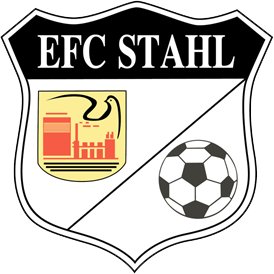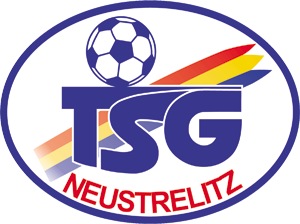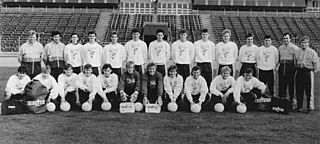
FC Energie Cottbus is a German football club based in Cottbus, Brandenburg. It was founded in 1963 as SC Cottbus in what was East Germany. After the reunification of Germany, Energie played six seasons in the third tier of the German football league system before floating between the 2. Bundesliga and Bundesliga for 17 years between 1997 and 2014. From 2014 to 2016, the club played in the third tier, 3. Liga, and were then relegated to the Regionalliga Nordost. In 2018, they were promoted back into the 3. Liga, only to be relegated again the next season.

FC Hansa Rostock is a German association football club based in the city of Rostock, Mecklenburg-Vorpommern. The club is also called as "the cog" because of its club crest. They have emerged as one of the most successful clubs from the former East Germany after German reunification and have made several appearances in the top-flight Bundesliga. With over 28,000 club members, the club is one of the largest sports clubs in Germany.

The DDR-Oberliga was the top-level association football league in East Germany.

1. FC Magdeburg is a German Association football club based in Magdeburg. The club was founded in 1965 from the football department of the sports club SC Magdeburg and has been one of the top teams in the DDR-Oberliga, winning three championships and seven cup titles. By winning the European Cup Winners' Cup in 1974, the club became the only East German club to win a European trophy and also achieved the greatest success in its history. After German reunification, the club fell on hard times but returned to professional football in 2015 with the promotion to the 3. Liga. Afterwards the team managed in 2018 to climb up to the second division, in which the team plays today.

Eisenhüttenstädter FC Stahl was a German association football club based in Eisenhüttenstadt in Brandenburg. The club dissolved in 2016 and merged into FC Eisenhüttenstadt. FC Eisenhüttenstadt plays in the sixth tier Brandenburg-Liga as of the 2021–22 season.
The German football league system, or league pyramid, refers to the hierarchically interconnected league system for association football in Germany that in the 2016–17 season consisted of 2,235 leagues in up to 13 levels having 31,645 teams, in which all divisions are bound together by the principle of promotion and relegation.

TSG Neustrelitz is a German association football club from Neustrelitz, Mecklenburg-Vorpommern. The football side is part of a sports club that also has departments for gymnastics and chess.

FC Schönberg is a German association football club from the city of Schönberg, Mecklenburg-Vorpommern.
Torgelower FC Greif is a German football club from the city of Torgelow in Mecklenburg-Vorpommern. The football team is part of a sports club which also has departments for women's sport, table tennis, and handball. The club was known as Torgelower SV Greif until 2014.
The NOFV-Oberliga Nord is the fifth tier of the German football league system in the northern states of the former East Germany and West Berlin. It covers the German states of Berlin, Brandenburg, Mecklenburg-Western Pomerania and northern Saxony-Anhalt. It is one of fourteen Oberligas in German football. Until the introduction of the 3. Liga in 2008 it was the fourth tier of the league system, and until the introduction of the Regionalligas in 1994 the third tier.

The Verbandsliga Mecklenburg-Vorpommern is the sixth tier of the German football league system and the highest league in the German state of Mecklenburg-Western Pomerania. Until the introduction of the 3. Liga in 2008 it was the fifth tier of the league system, until the introduction of the Regionalligas in 1994 the fourth tier.

Jörn Lenz is a German former professional footballer who played as a defender. Lenz had four different spells with BFC Dynamo during his professional playing career and has continued to serve as part of the club's backroom staff since retiring in 2008. Lenz played a total of 374 matches for BFC Dynamo between 1988 and 2008. He made two appearances for BFC Dynamo in the 1989-90 European Cup Winners' Cup.

Peter Sykora is a former East German association football player who spent the majority of his career with F.C. Hansa Rostock.
FC Mecklenburg Schwerin is a German football club based in Schwerin in Mecklenburg-Vorpommern. The club was formed from a merger in 2013 and competes in the fifth tier NOFV-Oberliga Nord. The club plays its home matches at the Sportpark Lankow. FC Mecklenburg Schwerin also has gymnastics squads and an Esports department.

FSV 63 Luckenwalde is a German football club based in Luckenwalde, Brandenburg, currently playing in the Regionalliga (IV).
Mike Werner is a German former professional footballer who played as a defender.

MSV Pampow is a German sports club in Mecklenburg-Vorpommern, Germany. The club was officially formed in 1990.
Rostocker Fußballclub von 1895 e. V. is a German football club from Rostock, Mecklenburg-Vorpommern. Founded in 1895, the club plays in the NOFV-Oberliga Nord in the fifth tier of the German football league system.

1. FC Union Berlin is a women's association football club from Berlin, Germany. It is part of the 1. FC Union Berlin club.
The 2024–25 season of the Frauen-Regionalliga Nordost will be the 21st season of the top league of Northeastern German Football Association in women's football. The 2024–25 Regionalliga Nordost is one of the five regional leagues that serve as the third-tier of women's leagues in Germany.













